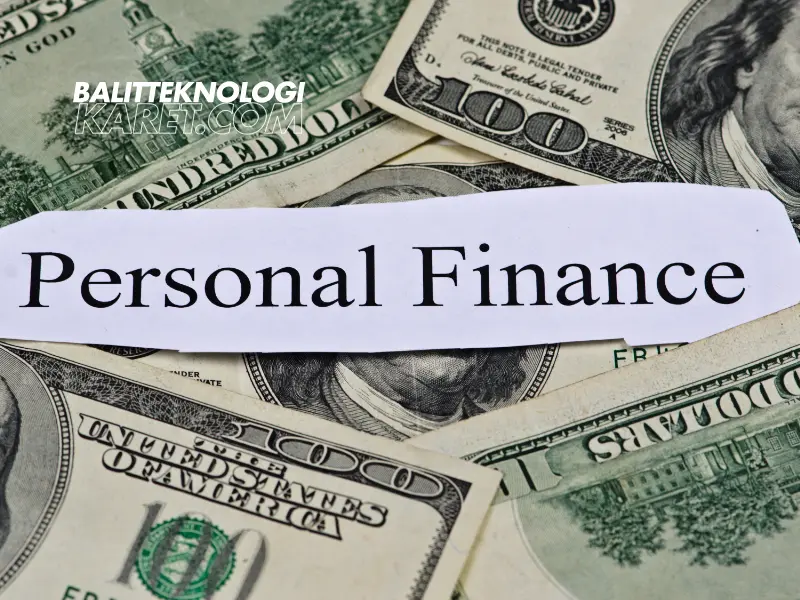Understanding what is personal finance is the first step toward achieving financial freedom. Personal finance encompasses all the financial decisions and activities of an individual or household, including budgeting, saving, investing, and planning for retirement. By mastering personal finance, you can make informed decisions that lead to financial stability and success. In this comprehensive guide, we’ll explore the fundamentals of personal finance and provide practical tips to help you manage your money more effectively. Whether you’re just starting your financial journey or looking to refine your existing strategies, this article will equip you with the knowledge to take control of your financial future.
What is personal finance?
Defining personal finance
Personal finance refers to the management of an individual’s monetary resources through budgeting, saving, investing, and planning for the future. It involves making financial decisions that can help achieve personal economic goals. By understanding what is personal finance, you can create a roadmap to financial stability.
Importance of personal finance in daily life
Incorporating personal finance into your daily routine is crucial. It helps you make informed decisions about spending and saving, ensuring you can meet your short-term needs and long-term goals. Effective personal finance management reduces stress and provides a sense of security.
Components of personal finance
Budgeting for financial stability
Budgeting is the foundation of personal finance. It involves tracking income and expenses to ensure you’re living within your means. By creating a budget, you can identify areas to cut costs and allocate funds toward savings and investments.
Saving strategies for future goals
Saving is essential for achieving future financial objectives, such as buying a home or preparing for emergencies. Establishing a habit of saving a portion of your income regularly can significantly impact your financial well-being.
Investing to grow wealth
Investing allows your money to grow over time through interest, dividends, or capital appreciation. Understanding different investment options can help you build wealth and secure your financial future.
Managing debt effectively
Debt management is a critical aspect of personal finance. Prioritizing high-interest debts and understanding loan terms can prevent financial strain and improve your credit score.
Planning for retirement
Early retirement planning ensures you have sufficient funds to maintain your lifestyle after you stop working. Consider options like 401(k)s, IRAs, and other retirement accounts to build a substantial nest egg.
How to get started with personal finance
Setting financial goals
Define clear, achievable financial goals. Whether it’s paying off debt or saving for a down payment, setting targets helps you stay focused and motivated.
Creating a personal budget
Develop a budget that outlines your income and expenses. Adjust it as needed to reflect changes in your financial situation.
Building an emergency fund
An emergency fund covers unexpected expenses, preventing you from accumulating debt. Aim to save at least three to six months’ worth of living expenses.
Understanding credit and loans
Learn how credit works and the impact it has on your financial health. Responsible use of credit cards and loans can improve your creditworthiness.
Tips and best practices
- Tracking expenses: Keep a record of your spending to identify patterns and areas where you can save. Numerous apps can assist with expense tracking.
- Reducing unnecessary spending: Cut back on non-essential expenses. Small savings can add up over time, contributing to your financial goals.
- Educating yourself on financial matters: Stay informed about financial trends and advice. Continuous learning empowers you to make better financial decisions.
Common mistakes to avoid
- Ignoring Financial Planning: Failing to plan can lead to financial difficulties. Take the time to outline your financial strategy.
- Accumulating High-Interest Debt: Avoid unnecessary debts, especially those with high interest rates like credit cards. Pay off balances promptly to minimize costs.
- Failing to Save for Retirement: Don’t neglect retirement savings. The earlier you start, the more you benefit from compound interest.
The role of technology in personal finance
- Utilizing Financial Apps and Tools: Technology offers tools to simplify personal finance management. Use budgeting apps, investment platforms, and online resources to stay on top of your finances.
- Online Banking and Investment Platforms: Online banking provides easy access to your accounts, while investment platforms offer opportunities to grow your wealth with minimal effort.
Understanding what is personal finance is crucial for anyone looking to achieve financial success. By implementing the strategies discussed, you can take control of your money, reduce financial stress, and work toward a secure future. Start today by setting clear goals, creating a budget, and educating yourself on financial matters. Your journey to financial freedom begins with the steps you take now.
Taking the initiative to manage your finances effectively is the key to unlocking a prosperous future. Now that you’ve learned what is personal finance, it’s time to put this knowledge into action. Start by assessing your current financial situation and setting realistic goals. Remember, every step you take brings you closer to financial independence. Take control of your financial destiny today-begin your journey toward financial freedom and secure the life you envision for yourself.
